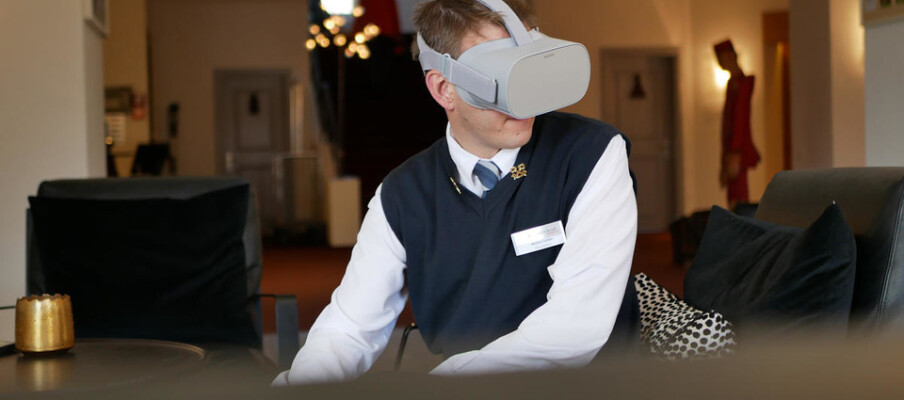Even in today’s digital world, guests have valuable physical, human interactions to get guidance and recommendation.
A hotel’s front desk plays an especially important role as one of the many “face to face exchange touchpoints” in a travel experience. There guest not only ask about opening hours of the hotel facilities but also about directions, restaurants and—in our region—hiking trail recommendations.
With the rise of AI and interfaces like voice recognition, front desks will see a change within the next few decades. But no matter if guests interact with humans or AI devices, they are looking for the best guidance they can get.
“Holiday are the most valuable time and guests like to invest this time in the best possible way. This makes guidance and recommendation invaluable.”
For the majority of brands, it makes a lot of sense to satisfy this need for guidance in order to build trust and to strengthen the brand’s overall value. And we can all imagine what is happening if the guidance is not good.
But providing guidance is not free, it is hard to scale (AI will help here), and the quality has to be very high.
How can we empower the front desk staff to deliver the needed quality?
Our VR experiment—on the occasion of the „HTW digital tour“—is all about this question and how we are able to educate employees at such critical touchpoints like the front desk.
For our experiment, we have selected front desk staff members at the Hotel Belvédère in Scoul, a small destination in the Swiss alps.
In this region, employees are mostly under a seasonal contract and many hotels start with new front desk team every half a year. Many of these employees come from other regions and have minimal knowledge of the area prior to their arrival.
As the salaries are low and the working days long, it is inappropriate to expect the workers to have knowledge and experience about the destination.
So how can we provide front desk staff member an effective education?
This is where VR comes in. One of the most promising VR use cases is education. It is not only because VR is able to provide a real-world environment, but VR is also a very intense experience. Even a very short session can have a huge educational impact.
Our experiment
Our focus involved two “highlights” (must-go places) within the destination where the hotel is located.
Highlight number one is the restaurant „Crusch Alba,“ one of the best places to go to enjoy local food and a must-go for every tourist.
We went to the restaurant with a 360-degree camera and asked the owner Rosi to explain (not advertise) her place. After the interview, we walked through the location and recorded the three different dining rooms.
Highlight number two is the Ice Skating trail through the forest. It is an amazing experience but ice skating skills are required.
We recorded an interview with the owner’s wife and went on the trail ourselves.
Both those 360-degree videos were produced on a purposely very low-budget and within two hours (plus three hours postproduction) to show how simple such a video production can be.
In the second phase of our experiment, we asked the front desk staff members the following questions (here are the questions).
The subjects were aware of the experiment, but we didn’t tell them if their answers were wrong or right.
Then we asked them to watch the two 360 degree videos using the Oculus Go VR device. The total length of both videos is 9 min.
After the VR session, we asked the same questions again.
Results
As you can see below, we were able to prove an education effect (before/after)
Ice skating trail
- Length: unknown / 3km ↑
- Entree fee: 7.5 / 10.- and 6.50 ↑
- Directions: unknown / unknown →
- Rent: Shoes, helmet / +seal ↑
Restaurant
- number of rooms: 0 / 3 ↑
- ambience: local →
- cuisine: local →
But it is not just a good result, the feedback from the front desk staff members was very positive too. After the 9 min VR session, they felt way better informed.
Summary
For sure, VR will not replace the “real experience” but for most front desk staff members, it is not an option to visit these places because of price, time, knowledge, etc.
VR can help by providing the closest possible environment to the real experience.
Our experiment showed very promising results, and I strongly believe VR can help us to enhance the guiding quality at the front desk.
But it is not limited to this touchpoint. VR also allows us to educate staff member even before they arrive. No matter if they were hired as front desk staff, bike guides or ski teachers.
We are looking forward to continuing with our experiment and sharing the results.
